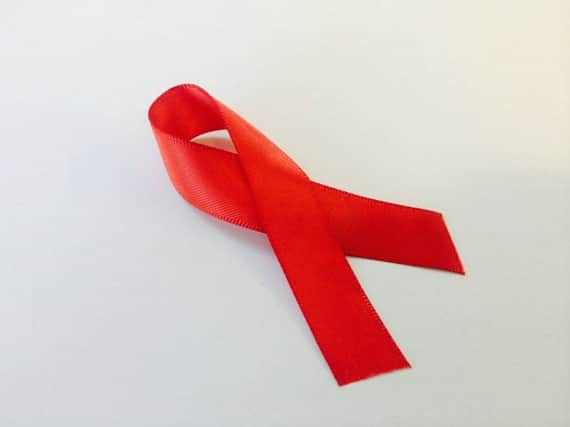Fifth of Scots think HIV is spread by kissing


The research also found that five per cent of people believe it can be passed on through sharing a glass, cup or cutlery.
And around a quarter (27 per cent) of people said they would be comfortable starting a relationship with someone who is living with HIV.
Advertisement
Hide AdAdvertisement
Hide AdHIV Scotland said this shows that public knowledge continues to include many myths and misconceptions that contribute to the ongoing stigma faced by people living with HIV.
It warns that misinformation “devastates relationships and lives” as it called for a co-ordinated approach to tackle HIV-related stigma.
The Our Voice Citizens’ Panel Survey study also found only 17 per cent of people were aware that PrEP, a pill you can take daily that prevents HIV transmission, exists.
Meanwhile, just 14 per cent of the 516 people who responded were aware that people living with HIV taking effective treatment cannot pass it on to their sexual partners.
George Valiotis, chief executive of HIV Scotland, said: “It is dangerous that myths and out-dated information remain so widespread.
“Their prevalence misleads and misinforms people of the 21st-century reality of HIV and devastates relationships and lives.
“It is time that everyone knows that HIV cannot be passed on via saliva, kissing or sharing cutlery.
“HIV Scotland produced a national strategy, The Road Map to Zero, which sets out the approach needed to tackle the myths surrounding HIV, which includes action on education in schools.
Advertisement
Hide AdAdvertisement
Hide Ad“We’ll continue to advocate getting education right for young people regarding HIV and sexual health whilst recognising that more needs to be done to inform the general public about the modern-day realities of the virus.”
One trans-woman living with HIV in Glasgow, who gave her name as Niamh, said: “As a person living with HIV, the stigma I’ve experienced is grounded in myths and untruths.
“As a result, I’ve given up dating as it’s simply too much to bear. I don’t believe we should live in a society where people like me find it too difficult to date because of the misinformation that exists.
“Stigma in all its forms, from media to health professionals to the person on the street, comes from a lack of knowledge and education. The need for this to change is long overdue.”
The findings come from the Our Voice Citizens’ Panel Survey on HIV awareness, mental health and wellbeing and inclusive communication, with the fourth survey report published on May 4.